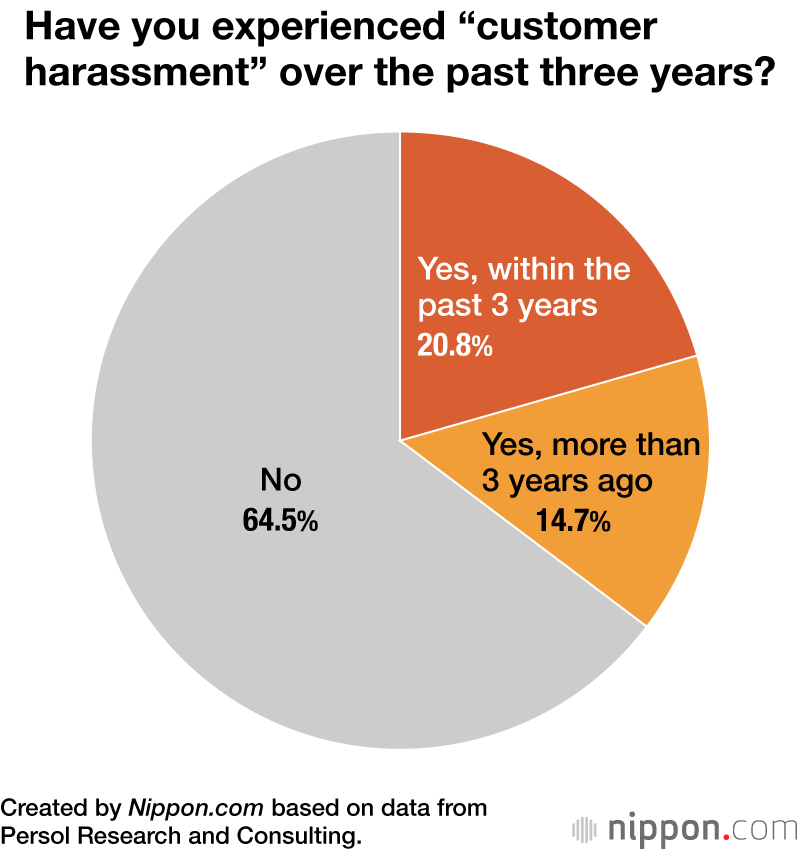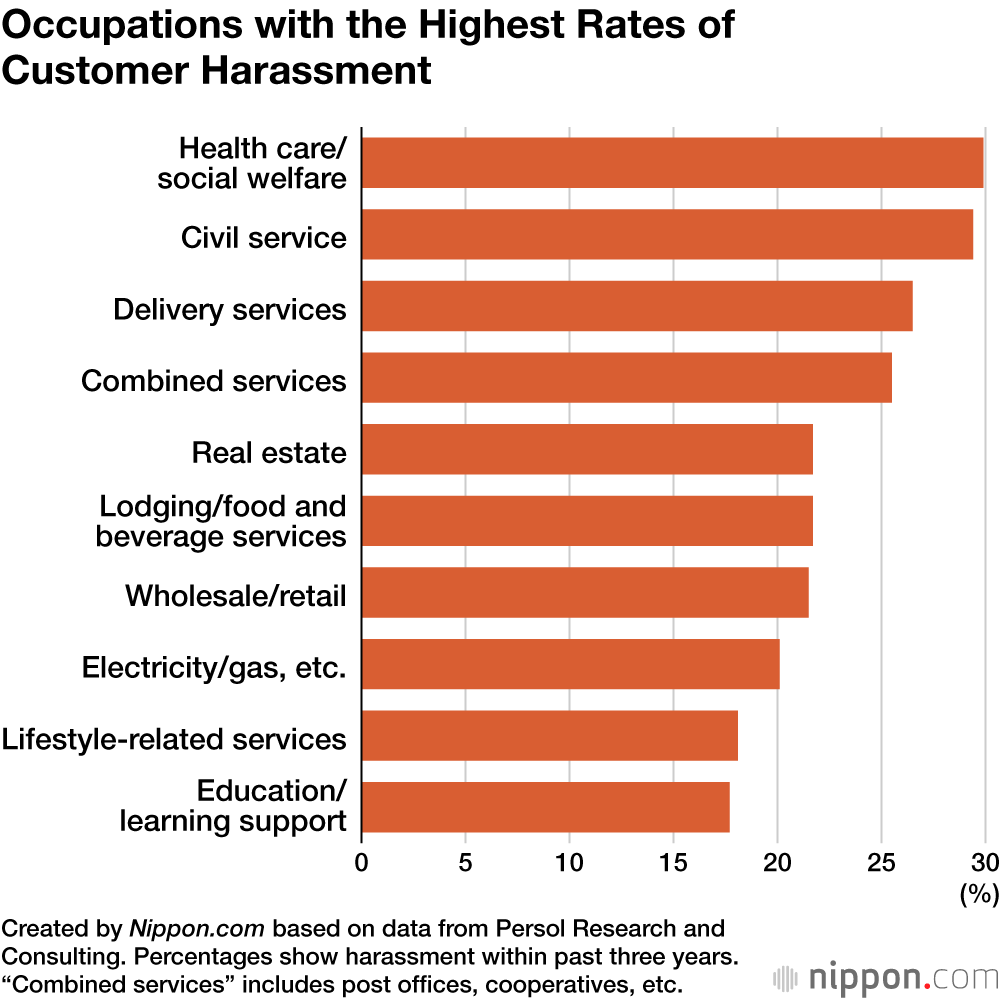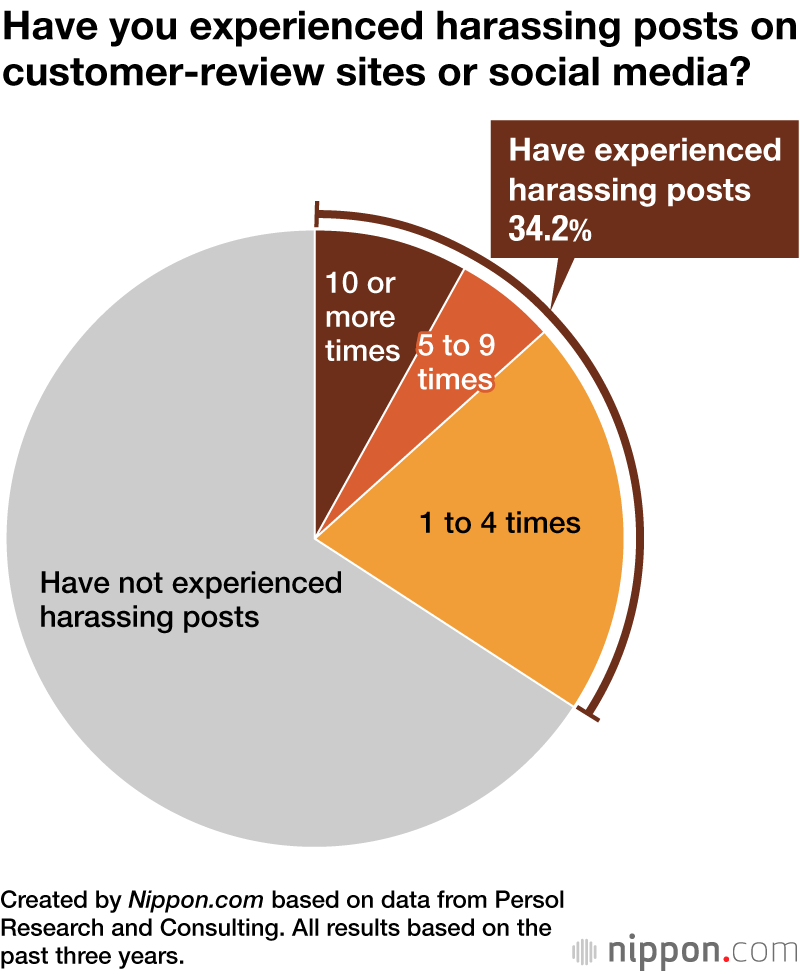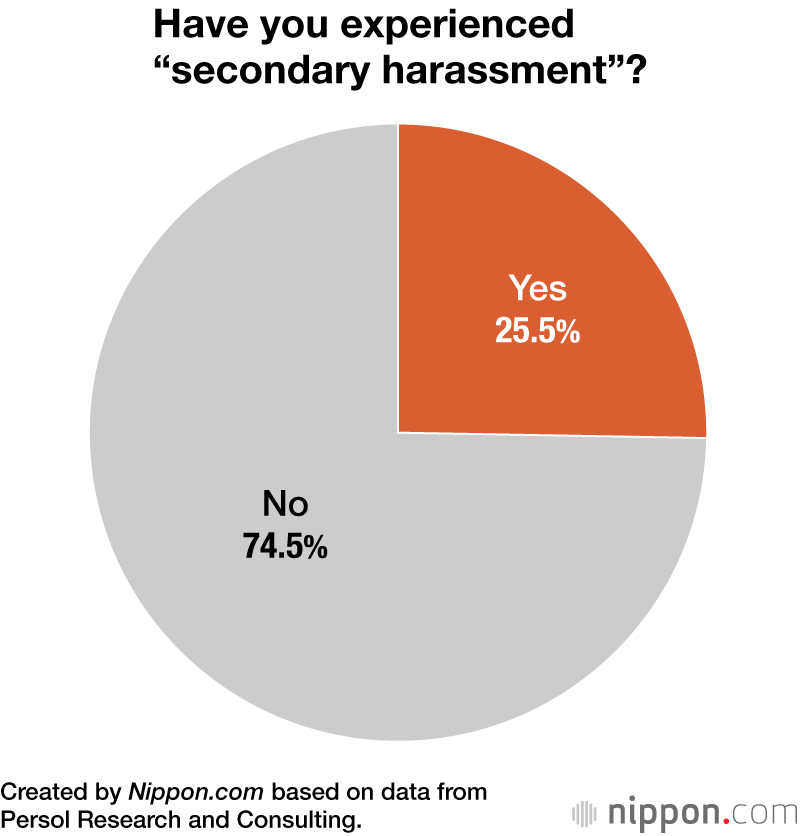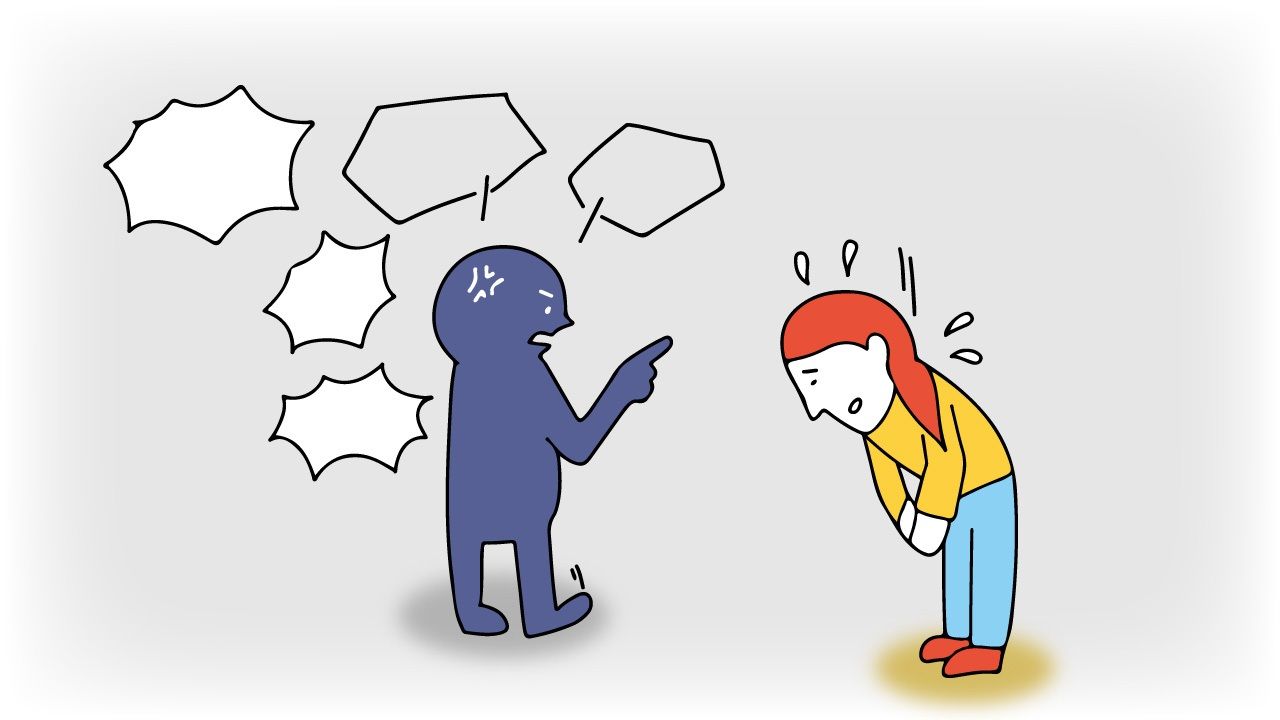
“Customer Harassment” Rampant in Japan
Society Work Economy- English
- 日本語
- 简体字
- 繁體字
- Français
- Español
- العربية
- Русский
A survey conducted by the think tank Persol Research and Consulting of around 20,000 employees in customer-facing professions found that 35.5% had experienced harassment from customers. Among them, 32.6% said that harm suffered from harassment had increased over the past three years.
The field of “health care and social welfare” had the highest rate of harassment over the past three years, at 29.9%, followed by the “civil service” at 29.4% and “delivery services” at 26.5%. Younger workers, whether men or women, were more likely to be harassed, and the self-employed suffered the highest rate of harassment.
The open-ended descriptions of harassment cases made by the survey respondents included the following types of serious infractions: “When I visited a patient’s home to provide nursing care I was repeatedly prevented from doing my work and violently scolded and then falsely accused of assault”; “When I was explaining a product to a user, the person did not like the explanation and insulted me in a high-handed and aggressive way”; “A man made lewd comments to me over the phone.”
Among the survey respondents, 34.2% had experienced harassment on customer-review sites or social media over the past three years, while 13.5% had been subject to such harassment five or more times.
In addition, 25.5% of the respondents have experienced “secondary harassment,” which occurs at the time victims of harassment report or discuss the case within their own company. Among those respondents who reported on harassment to their company or supervisor, 11% were told to just “put up with it,” followed by the 8.9% whose claims were not taken seriously and 8.2% who were blamed for the harassment taking place. Moreover, in 0.7% of the cases, the person who was harassed was urged to quit his or her job.
Kobayashi Yūji, principal researcher at the institute, offered the following remarks: “The response of companies to customer harassment has not been proactive. Completely preventing customer harassment is difficult, but it is important to consider how to create an organization that is highly resistant to such harassment.”
The survey was conducted online in February and March 2024, targeting approximately 20,000 people in Japan aged 20 to 69.
(Translated from Japanese. Banner photo © Pixta.)
